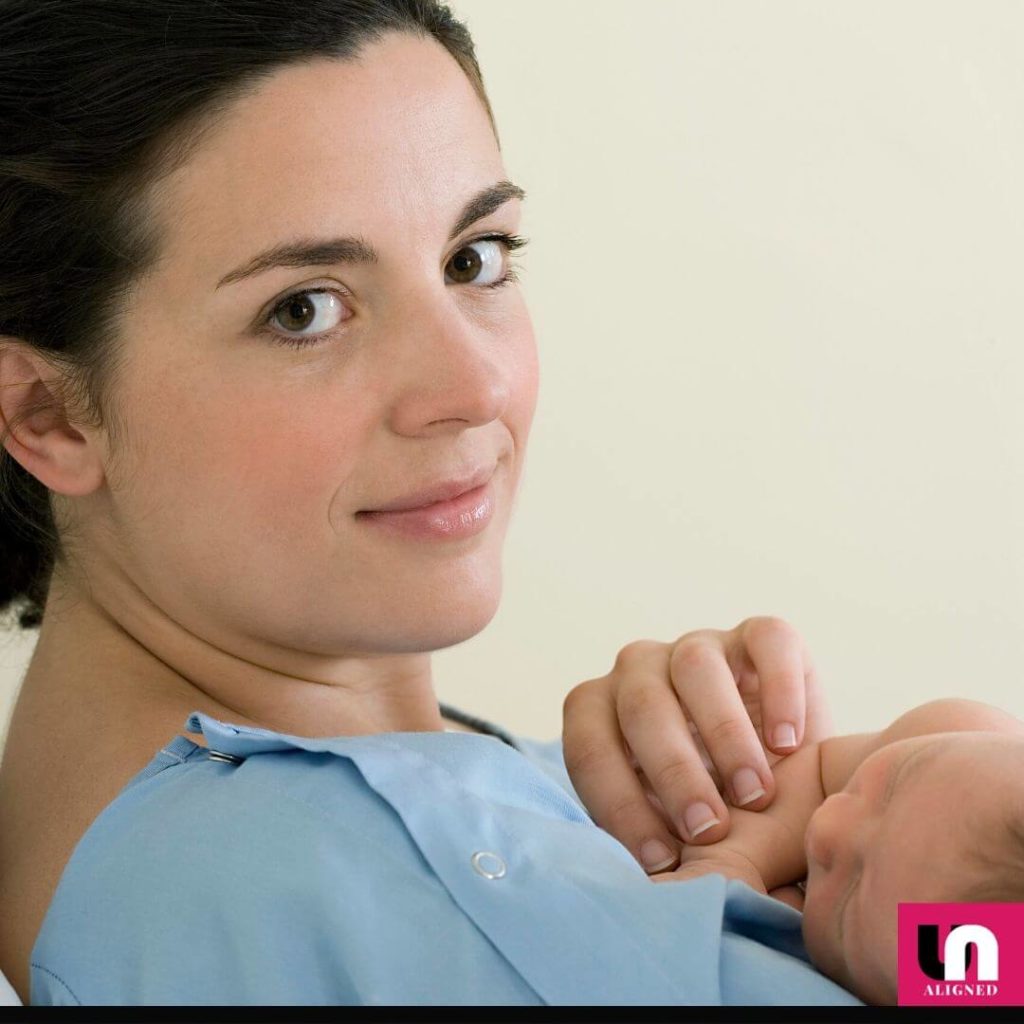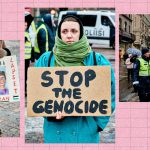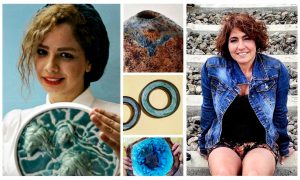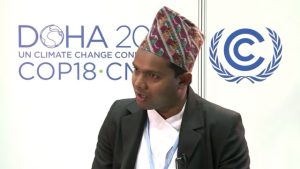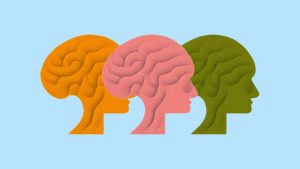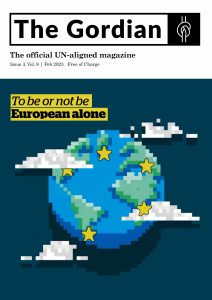“The period soon after childbirth poses substantial health risks for both mother and new-born infant. Yet the postpartum and postnatal period receives less attention from health care providers than pregnancy and childbirth. Models of postpartum and postnatal care have changed little since first developed a century ago. The World Health Organization (WHO) is in the process of revising and updating its guidance on postpartum and postnatal care delivered by skilled providers.”
What was described as a panic attack when I was four months pregnant felt more like postpartum where I felt I was losing my mind. In the summer of 1997, I was on holiday in Portugal in this beautiful villa in Braga, when suddenly one night I woke up unable to breath. I was gasping for air and felt as though I was suffocating. I began to feel claustrophobic and we had to leave Braga early the next morning as I couldn’t stay a minute longer. We drove to Porto, back to the family home, where I spent one week in my room fighting off the panic attacks.
I was in a state of constant agitation and on the verge of losing my mind. Weeks later, when back in London, I realised I had become claustrophobic and I was unable to use a lift or remain in closed spaces. My doctor explained that it was just anxiety and it would pass. Unfortunately, up to this day, I still can’t use a lift.
Five months later, I gave birth to my son Zak who was 6.8 lbs but remained nameless for six weeks as I was unable to decide on the name. The birth was traumatic and I couldn’t understand how women kept this quiet. I felt enraged with how there had never been an open dialogue about giving birth and the effect it has on our body and mind. During my pregnancy I was a full-time infant teacher, while also studying a diploma in multi-disciplinary psychotherapy. Moreover, I was in the process of opening a Bistro Cafe in London: The Orange Room.
The Postpartum Depression
By the time I gave birth to my son, I was exhausted and felt the birth had knocked me to the ground. So perhaps it wasn’t surprising that I would have some psychological breakdown. I was so disturbed by the experience of giving birth I decided to share this with my therapy course in a form of a presentation. I was open about my experience of the actual birth which shocked the mothers in the room, but the men were fascinated. For some of the men it was the first time they were able to ask very personal questions freely and this gave me the satisfaction that at least I could be helpful by not keeping my experience a secret.
A month after birth I started to feel something was wrong. I would be holding my son and suddenly disturbing thoughts would engulf my mind. Thoughts that I could not control. Thoughts of harming my son, thoughts of dropping him to the ground, thoughts of pouring hot water over him, thoughts of stabbing him.
Quickly I would almost throw the baby to his father or to anyone in the room and run to my bedroom to compose myself. This would reoccur several times in the week. I had no idea of what was happening to me. I discussed the problem with my extended family and their response was to advise me not to mention this to the visiting nurse as she could take my son away. As a result of this advice, I kept quiet
I had attended all my antenatal appointments and classes, but there was never any discussion about postpartum. There was a vague mention of postnatal depression which I had renamed postnatal-trauma because that’s what I felt I was experiencing.
Do you feel that you were in any way prepared for the possibility of having to deal with postpartum?
Absolutely not! I had never even heard of the condition.
Was your G.P. or were prenatal clinics helpful in any way?
Absolutely not. There was no mention or emphasis on what can happen after birth. All my prenatal preparations in Tower Hamlets were for the physical birth and never addressed the mental health of the mother. When I plucked up the courage to talk to my doctor, she wasn’t helpful either. She told me to just ignore the awful thoughts whenever they would come. Since I had never heard of my condition and nor had the health professionals I consulted, I concluded that it was just me, unable to cope with or recover from giving birth.
Did you have any idea of what might have been happening?
No, I did not know, but what is even more concerning is that the doctors and nurses may not have known. Or did they miss it? I don’t know the answers.
What did it feel like?
I remember telling my family that I knew what it was like to lose one’s mind, the sense of madness. I lost connection and meaning with reality. Everything stopped making sense. During my episodes, I couldn’t understand the conversations between the family. I would put my hands over my ears and run out the room because I couldn’t handle the noise, I couldn’t understand why they were watching television, I couldn’t eat or make sense of what food was and why should I eat it.
Was the situation exacerbated by other physical or social complications?
I believe so. I’m going to be honest with you and say this… I was under a tremendous amount of pressure, as well as the responsibilities mentioned above, I was also in the process of purchasing my house and I was gazumped the week I gave birth to my son. This too, therefore, was extremely upsetting. However, while the extreme pressure I was under didn’t help, I could have been prevented from further strain if I had only known about the condition or had been alerted by the professionals instead of having to internalise it all.
Did you take prescribed medication or other remedies to help you cope and if so, were they effective?
I never took any meds as none were prescribed and I didn’t know that there were any meds available for this condition as I didn’t know it was a condition. I had been led to believe that these thoughts would pass.
Was your husband supportive and were you aware of any other support networks you could turn to?
My partner was also in the dark about my condition, but he was sympathetic and empathetic; and while he helped with our son, he was unhelpful with regards to getting me the help I needed. There was no community support in Tower Hamlets either and there was no mention by any professional of any mother and baby agencies. I therefore closed up and further isolated myself from the outside world.
What more do you think should be done to help mother going through postpartum?
I’m guessing that over 22 years ago we were ignorant about this condition and perhaps it’s no wonder that I suffered in silence. So maybe what would be good is to look at where we were medically 22 years to see the number of undiagnosed cases and compare those results to today’s. Just a thought. The WHO has written about this. What needs to be done is to make this condition known to mothers, but also to their families.
Sometimes mothers may not be able to understand what’s happening to them, but family members may be able to see the changes and get appropriate help when it’s needed. This condition can last between 6-12 months. It happens during the most important time for the mother and baby to bond and form attachments and if this period is interrupted or missed due to mental illness, then this could be detrimental to both baby, mother, family and community.
This condition needs to be diagnosed immediately and proper treatment must be offered, including monitoring for the entire period, alongside therapy if required. Further support can be given from the extended family. In my Moroccan community, for instance, mothers would often come over from Morocco to be with their daughters and they would stay a few months to look after the mother and baby, as well as the family.
Judging from your experience, what advice would you give to expectant mothers?
Educate yourself and your partner and family. Have an open dialogue with your friends and your partner about this condition before you experience the symptoms. Discuss the condition with your doctor, nurse and midwife so that everyone is on the same page if it should ever happen to you. Everyone involved should know about this condition in order to be ready in case it should happen to you.
This will put you in a safe and controlled situation where you will not have to suffer alone for so long and at such a critical period for you and your baby. Also, and critically important, the health professionals need to be educated and put on the alert about this condition. They need to be in a position to be able to diagnose postpartum early so that babies’ lives are not put at risk and suffering can be minimised.
What do you think international organisations like UN-aligned should do to help with the problem?
UN-aligned and the WHO also need to come on board with this and have a global study of the condition to assess its epidemiology and to compare the findings between continents/countries to learn how the global community is dealing with this condition so that we can learn from each other and bring together the findings quickly to alleviate sufferings. The WHO has written about postpartum, but it needs some statistics and findings on how progressive countries are delivering support to the community at the grassroots level.
Is there anything else you would like to add?
I only discovered the information on postpartum a few years ago by chance. As I was reading, I couldn’t believe that I had had a condition, but never knew that it was a condition that could have been treated. I was devastated to learn that it was a hormonal dysfunction/imbalance and that it was curable.
All these years I thought that I had healed myself. On the sixth month of the postpartum I couldn’t take it any longer and so I made the decision to pack and go to my home country Morocco with my baby and either heal or go mad. So, I went. Within a few weeks of being in Morocco the episodes stopped. I couldn’t believe it, I thought it was a miracle. I also realised that being with my extended family and the strong sense of community helped a lot compared to being totally isolated with just my baby every day at home.
When I learned that postpartum lasted 6-12 months I realised that perhaps the illness had stopped at 6 months and being with the extended family could have sped my recovery. My guess is that being with a welcoming and warm extended family eradicated that fear and isolation.
So perhaps UN-aligned can send the message to young mothers to be with loved ones and not isolate themselves and to seek medical advice if they feel things are not right.
• Rahima El Harrak is a restaurateur and amateur photographer. She is based in London, but has spent extended periods away, particularly in Morocco and France.



